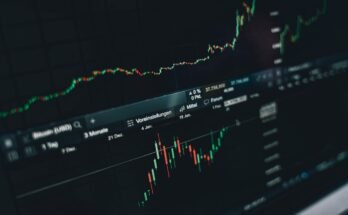In an age of rapid digital evolution, AI policy and strategic innovation are at the forefront of shaping global economies, societies, and business. Artificial intelligence (AI) is disrupting industries, from healthcare through finance and education to security, and there is a massive need for the governments and industries to formulate policies that will ensure responsible AI adoption. Underpinned by AI-led innovation, industries may use their advantages in productivity, introduced new ways of making decisions, and ensure competitive edges as technology keeps developing.
The Role of AI Policy in the Digitized World
AI policy is a key governance framework to regulate AI technology in its development, deployment, and ethical use. While establishing a strategic set of guiding policies for AI, these policies offer checks and balances to govern how rapid technological change is reconciled with ethical implications for the greater good. Some of the key features of successful AI policy are as follows:
Ethical AI Development-Version of AI designed in a very accountable manner that upholds transparency and fairness and prevents discrimination and bias.
Data Privacy and Security-Effective mechanisms to protect data that is sensitive from unauthorized access or cyber attacks.
AI Governance and Compliance-Such policies intend to set up compliance mechanisms to monitor the decision-making of AI-based companies and prevent misuse.
Sustainable AI Innovation-Such policies promote AI applications for environmental protection and well-being.
International Collaboration-Promotes cross-border AI regulations to develop an ample and uniform AI governance framework on a global scale.
Strategic Innovation: The Future of AI-Driven Growth
Strategic innovation in AI allows governments and businesses to integrate AI into their core activities to enhance economic growth and industrial development. Some of the ways AI-driven strategic innovation is impacting these industries include:
1. AI in Business and Digital Transformation
Automation powered through AI is ushering in the possibility of changing business operations by offering improved processes, lower operational costs, and excellent customer experience. AI-powered analytics help organizations to make informed choices on what are the real best realigned workflows while personalizing customer marketing.
2. Artificial Intelligence in Healthcare and Biotechnology
AI finds application in the healthcare sector in medical diagnostics, robotic surgeries, drug discovery, and patient monitoring. AI algorithms analyze vast volumes of medical and operative procedure-specific data, which results in improved patient outcomes due to early diagnosis of the disease and personalize medicine, resulting in reduced healthcare costs.
3. Smart Cities and Infrastructure Using AI
AI-enabled innovation is at the heart of the smart city vision by enhancing our management of traffic, energy optimization, and public safety. There is seamless integration of AI city planning solutions toward creating sustainable urban centers in this regard by reducing carbon footprints and optimizing resources.
4. AI in Cybersecurity and Risk Management
In the wake of ever-evolving cyber threats, AI-based security solutions are widely adopted in anomaly detection, fraud prevention, and threat mitigation for data breaches. Advanced AI-driven threat detection solutions further strengthen our digital security apparatus to ensure safe transactions and data integrity.
5. AI and Sustainability Towards a Greener Future
AI can potentially solve some of the major environmental problems by optimizing energy use, allowing predictive maintenance for renewable energy, and minimizing waste. AI-enabled climate modeling allows for greater accuracy in climate change projections to support environmentally sustainable approaches.
Challenges and Considerations in AI Policy and Strategic Innovation
While AI ranks high among thought leaders with transformative applications, efforts must be directed toward bottling the following challenges for responsible innovation:
Regulatory Uncertainty- Policymaking on AI must find the fine balance between innovations in AI and cognitive risk surrounding their deployment.
Labour Force Transformations- AI-driven automation have changed the landscape of labor. Reskilling and upskilling are all required for a workforce whose lives have changed.
Active Cycling of AI- The establishment of fairness, neutrality, and transparency in AI deployment is critical to the trust an AI produces.
Cybersecurity and Data Safeguarding-Carefully laying down AI’s security framework shall create a newfound database space in which sensitive information can be protected from invading cyber threats.
Conclusion: The Future of AI Policy and Innovation
As AI continues to reshape different industries and redefine societal norms, its policies and strategic innovations will be of utmost importance in sustaining an inclusive future. Governments, businesses, and technologies shall need collaboration.
keyword
AI is transforming, disrupting industries, public lifeways, and, therefore, its policy and strategic innovations would prove a proverbial silver lining for a more sustainable and equitable future-a good cause for government to work on.



